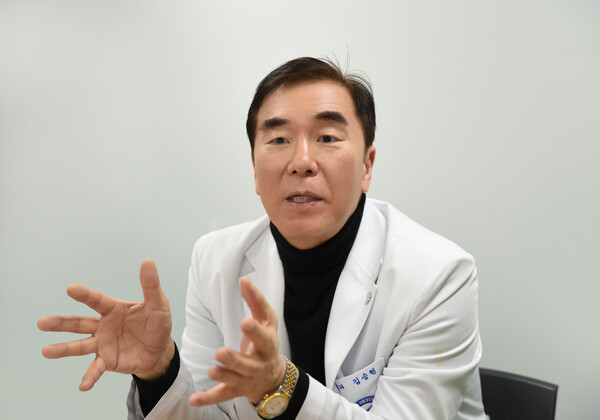The government's push to increase the medical school enrollment quota has led to the departure of most medical residents from training hospitals, forcing various medical societies to cancel annual workshops for new interns and residents.
Kim Seung-hyun, president of the Korean Neurological Association (KNA), said the association had planned to hold a workshop for more than 100 first-year medical residents last Friday and Saturday to provide general guidance on domestic and international trends in neurology, the society's membership system, its role, and the training process but canceled it.

He added that the government's policy to increase medical school admissions has caused junior doctors to abandon training, and positions for 110 new medical residents selected through the recruitment last year disappeared.
"We decided to cancel the event because the government regards the mass resignation of trainee doctors in protest against the government's unreasonable policy of increasing the number of medical students as a strike,” Kim said. “In this situation, it might also appear as a collective action if our association holds a workshop for new medical residents.”
Kim added that he could not know why the Yoon Suk Yeol administration is pushing (for the increase of medical school students) so hard.
"The government says it's an important decision based on criteria, but the criteria were wrong from the beginning,” Kim said. "The government seems to regard what’s gone wrong as right. However, the virtue of a leader is not only to do what is right but also to do what is good."
Kim pointed out that justice is not about what’s right or wrong; true justice lies in what many people agree on and feel happy about. Therefore, a leader should think about what is best, but the President and the Ministry of Health and Welfare are just trying to divide it into right and wrong.
The government is misleading people into thinking that all patients, including critically ill patients, are having problems. Still, Kim said there are no problems because the remaining workers are in charge of the emergency room and intensive care unit.
"University hospitals shouldn't be like prospering eateries where there is no place to sit, and you must share a table with strangers. But the government has created such a situation," he said. I hope that this time, we can establish a system of primary, secondary, and tertiary hospitals so that university hospitals can focus on severe and rare diseases."
Related articles
- Court to decide whether to suspend medical student increase as early as Friday this week
- Nurses are filling in trainee doctors from today. Here’s what they can and can’t do.
- Korea mobilizes over ₩200 billion per month to maintain emergency care
- After exodus of trainee doctors, cash-short hospitals scramble to borrow money
- Confusion reigns from day 1 of putting public health doctors in teaching hospitals
- SNU medical professors propose requesting foreign institute to forecast Korea's physician increase
- 'Void of trainee doctors, Big 5 hospitals could suffer bankruptcies in a cascade'
- From March, tertiary hospitals will get ₩18 million monthly if they hire a physician
- Korean trainee doctors seek ILO's intervention against government's work order mandate
- Experts clash over effective dates of trainee doctors' resignation letters
- [Contribution] Truth about medical professors’ resignations
- Seoul's ultimatum to trainee doctors: return to teaching hospitals or face de facto license revocation
- International women physicians condemn gender-biased remarks by Korean official
- 350 delayed surgeries reported in 1 month after trainee doctors left hospitals
- 2,460 medical students intend to join army but government tells them to return to study
- Emergency doctors group urges media not to stigmatize ERs unable to accept patients

